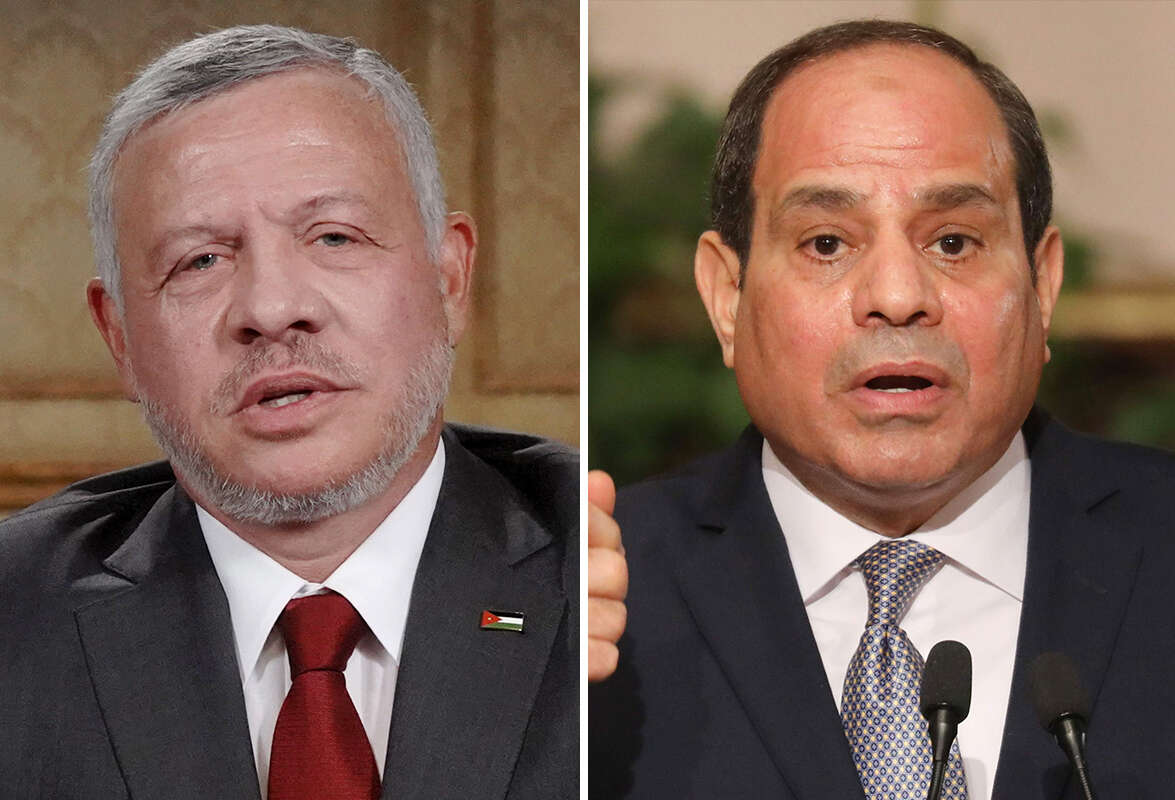44 years have passed since the peace treaty with Egypt was signed, and at the end of the month we will mark 29 years since the signing of the peace treaty with Jordan. In both agreements, the parties pledged to maintain good relations between them, maintain normalization, and "refrain from hostile or discriminatory propaganda against each other." But as with other aspects of these agreements, the contract was signed and the idea remained on paper. There is almost no opposition media in the Arab world. Television stations and print media are institutional and operate with government approval. As such, they are the mouthpiece of the government (there are more and there are less). It is therefore astonishing to see the reaction of the establishment press in Egypt and Jordan to Hamas' crimes and the war in Gaza.
Take, for example, the following excerpt from the Jordanian newspaper Al Dustour, the oldest newspaper in the Hashemite Kingdom, partly owned by the government. Under the headline "Oh the Palestinian factions united," Muhammad Dawudia compares Israel to Nazi Germany:
"During the Nazi German invasion of Europe, and despite all the tyranny of Hitler and the Germans, the leader of the Bulgarian resistance, Georgy Dimitrov, said: 'Nazism is not destiny.' Dimitrov, who became Bulgaria's prime minister after its liberation in 1945, said: 'The conditions for defeating the Nazi occupation are available in the unity of the forces that oppose it.' We [Jordanians and Palestinians] say with complete confidence and without illusions: 'Zionism is not destiny.'"
In another part of the article, the Jordanian writer argues that the Palestinian struggle is not only for the independence of Palestine, but for humanity and the national idea. This is just one example among many. There is no mention of the terrible massacre of the residents of the Gaza envelope; No reference to the abduction of the elderly and women, babies and children; Complete silence over the murder of families and participants of the nature party. Most of the Arab attention in general, and Jordanian and Egyptian in particular, is focused on the "crimes of the Zionist regime," the actions of the "extremist occupation regime," and the "angry and cruel Israeli response."
The Arab coverage concerns the number of casualties in Gaza, the destruction of homes and shelters, the "harm to innocent people," refugees and displaced Palestinians, and the deliberate destruction of mosques.
Moreover, the Arab media embraces and explains to the world the Palestinian narrative in this war. In other words, it was Israel that brought upon itself this attack, the "Al-Aqsa flood." Because of its tyranny, Farouk Jaweidah writes in the Egyptian newspaper Al-Ahram, "The youth of the intifada... They storm the borders of the land (Israel), cleanse the abomination of murderers and prove to the world that there is a people that will not give up its land and its honor." Since this is not just another round of fighting in the Gaza Strip, since we have not encountered such murder and destruction since 1948, since we fought for our independence, Israel must also prepare correctly in the arena of propaganda and the war over the narrative. It is not the victim who is to blame for the attack on him, as the Arab media portrays it, but Hamas, which is willing to sacrifice its people and the residents of the Gaza Strip for its murderous ideology.
There is almost no opposition media in the Arab world. Television stations and print media are institutional and operate with government approval. As such, they are the mouthpiece of the government (there are more and there are less). It is therefore astonishing to see the reaction of the establishment press in Egypt and Jordan to Hamas' crimes and the war in Gaza
The war in the media arena is important from two points: first, it is important to restore deterrence not only against our surrounding enemies, but also against our neighbors with whom we have peace agreements. Jordan and Egypt always test Israel's resilience, and in cases of crisis this has implications for relations with Israel as well. Second, because at the moment the sympathy for Israel is enormous. The international community condemns Hamas' crimes from wall to wall, and we receive favorable coverage in almost every Western media. But as time passes, the more Israel increases the pressure and firepower on Gaza, the more the pendulum will swing. The images of the massacre from Bari and Nir Oz will be replaced by destroyed buildings in Gaza, pictures of dolls strewn in the streets, and the humanitarian crisis developing in the city of terror. And then the world will again be exposed in all its hypocrisy and pressure Israel to stop. Stopping the fighting without crushing Hamas is tantamount to returning to square one and inviting the next confrontation in Gaza.
Wrong? We'll fix it! If you find a mistake in the article, please share with us

